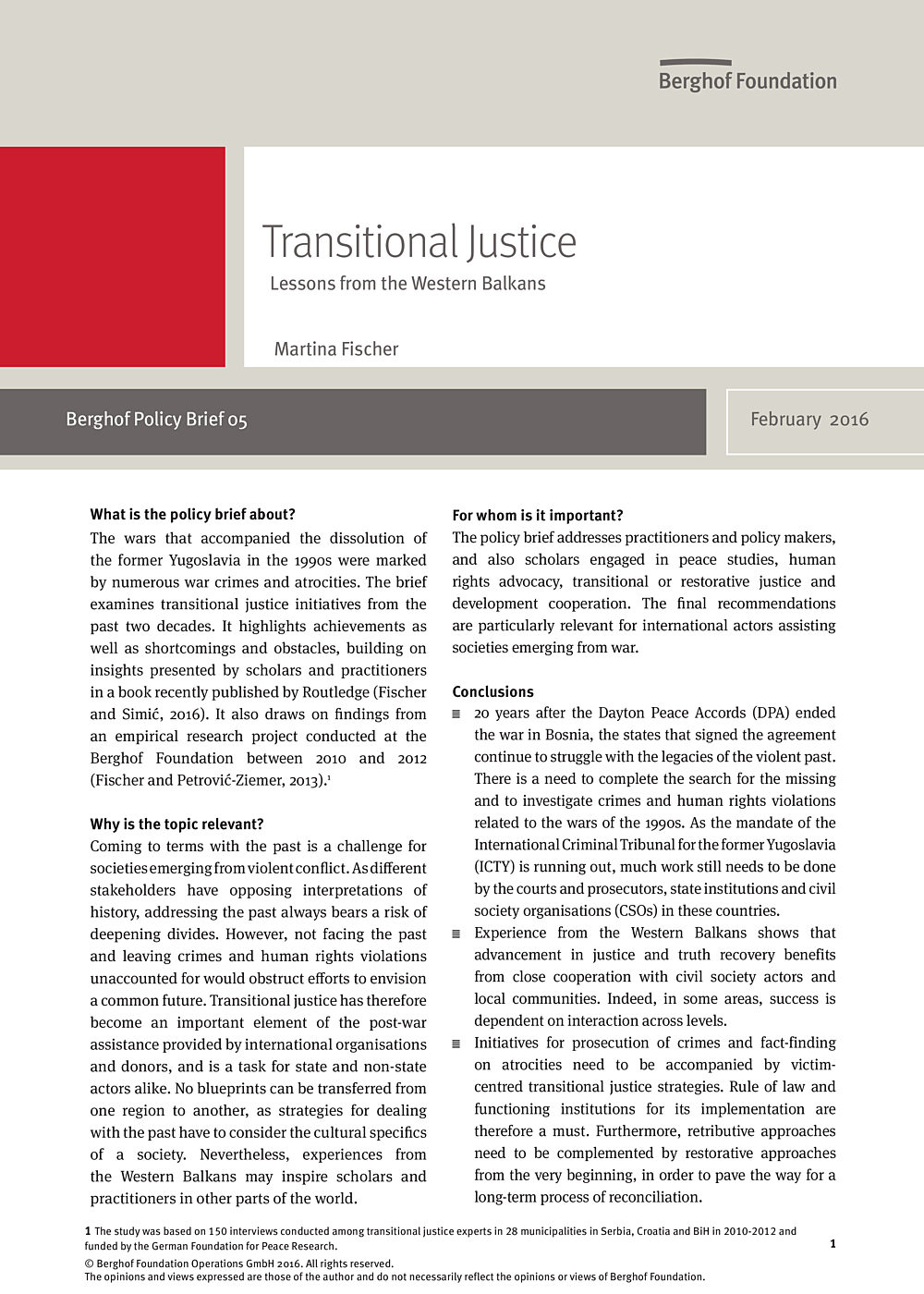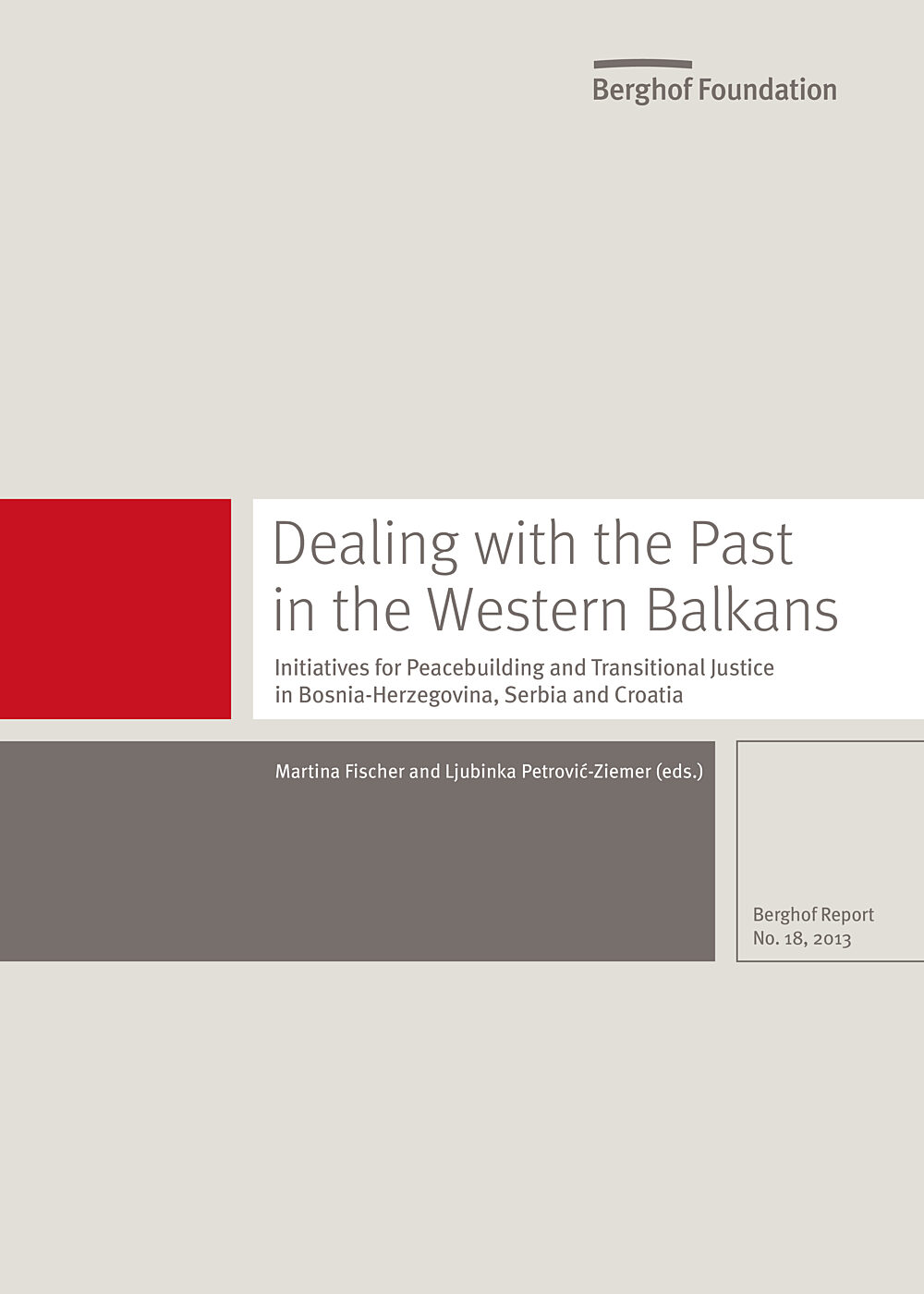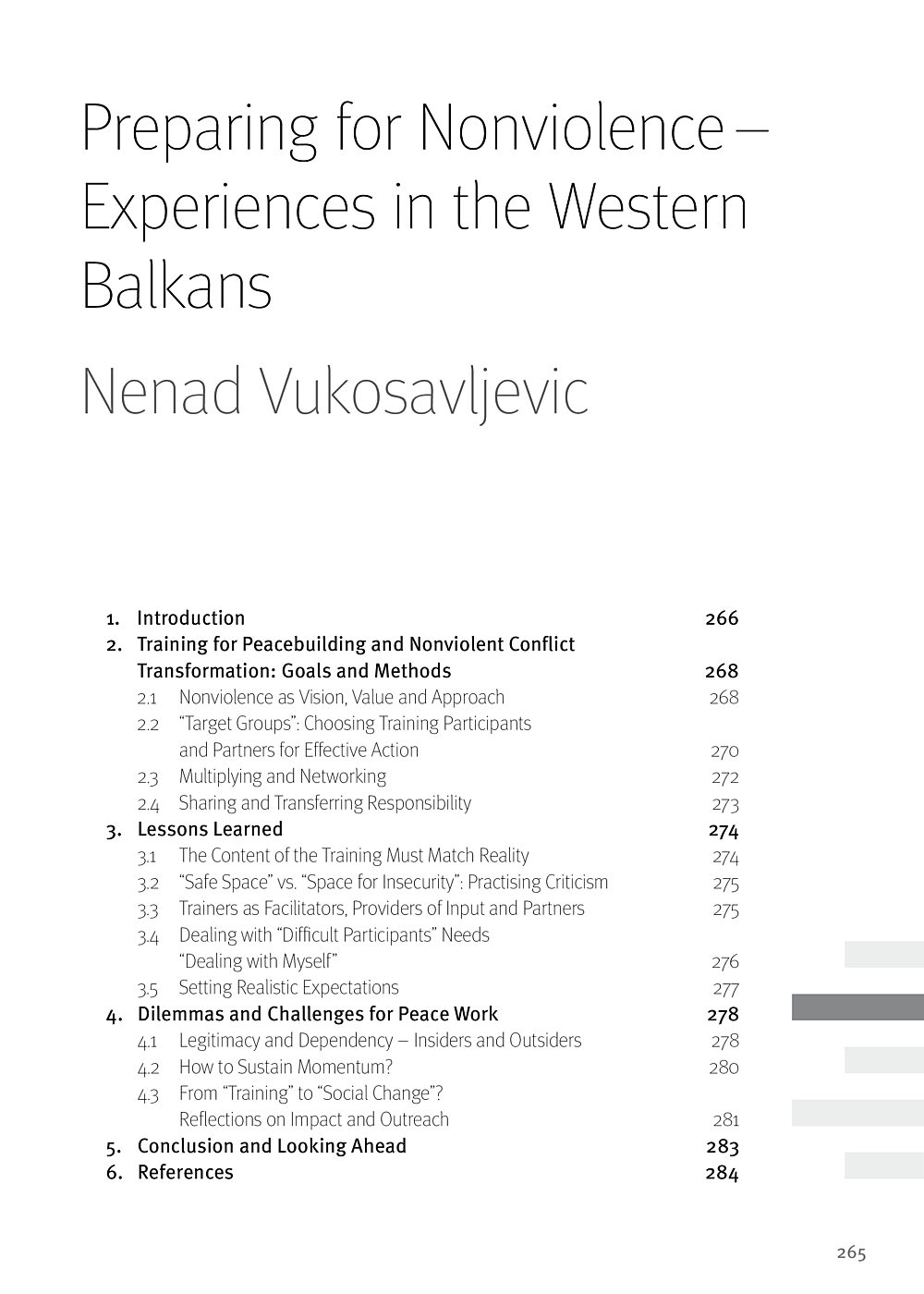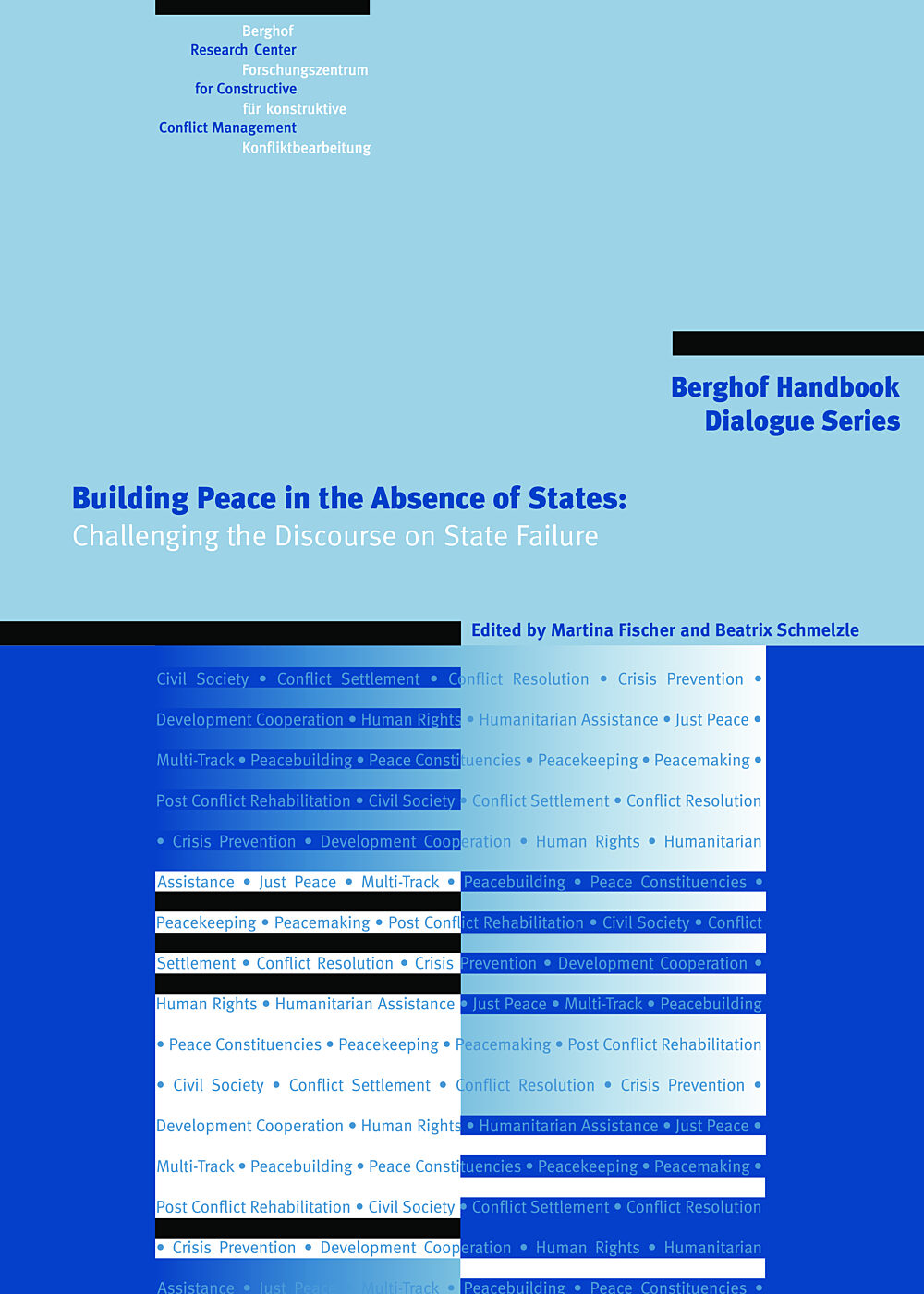Our Library
Explore our publications, from research papers and series to educational materials, covering all aspects of conflict transformation and peace promotion.

Transitional Justice: Lessons from the Western BalkansPolicy Brief No. 5
The policy brief examines different approaches and initiatives for transitional justice and reconciliation that have been implemented since the Dayton Peace Accords (DPA) ended the war in Bosnia in 1995. It highlights achievements and innovative approaches in processes of dealing with the past as well as shortcomings and obstacles for reconciliation.
- Year2016
- Author(s)Martina Fischer

Dealing with the Past in the Western BalkansInitiatives for Peacebuilding and Transitional Justice in Bosnia-Herzegovina, Croatia and Serbia (Report No. 18)
The publication presents results of a project funded by the German Foundation for Peace Research (DSF). The study investigates initiatives for reconciliation and “dealing with the past” which were undertaken by international organisations, legal institutions and local civil society actors in response to the wars of the 1990s. The coherence of objectives and strategies and their implications for peacebuilding, forms of cooperation and learning experiences, and the political resonance of the various approaches were a particular focus of interest. In all, 150 interviews were conducted in 28 municipalities. The study was carried out with input from civil society organisations and academic experts in the region. Srđan Dvornik (Zagreb), Katarina Milićević (Belgrade), and Ismet Sejfija (Sarajevo) co-authored the study.
- Year2013

Preparing for Nonviolence – Experiences in the Western BalkansHandbook Article
- Year2011
- Author(s)Nenad Vukosavljevic

Building Peace in the Absence of States: Challenging the Discourse on State FailureHandbook Dialogue Series No. 8 - complete
The exchange between the lead authors and the discussants in this dialogue vividly illustrates the need to shift from a state-centric view, yet without entirely rejecting the notion of state. At the same time it shows the difficulties of integrating concepts of political order that do not correspond with the western-style Weberian/Westphalian state. Instead of advocating ideal-type, off-the-shelf models and blue-prints, the contributors to this dialogue argue that historically well-informed analysis, which leads to a deeper contextualized understanding of the local and regional situation on the ground, has to be the bedrock of any attempts for external assistance aimed at peace and development. They discuss evidence and counter-examples from Somaliland, Afghanistan, Liberia through to the Balkans and East Timor.
- Year2009